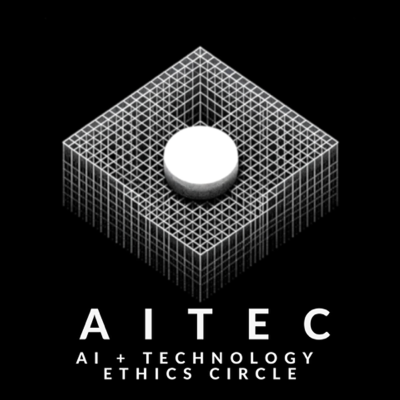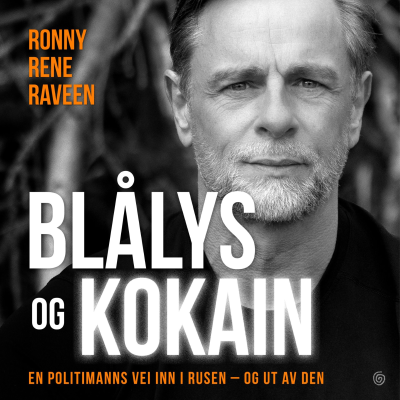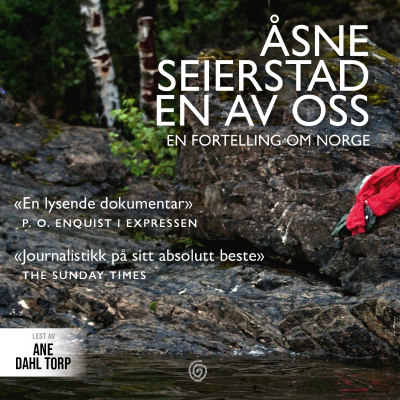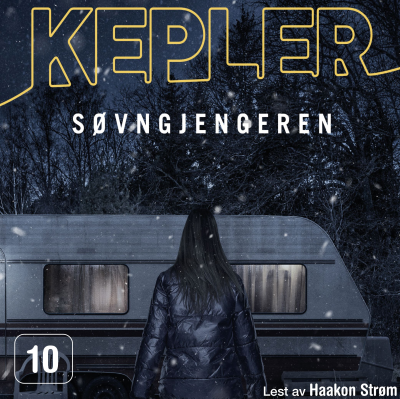
AITEC Podcast
engelsk
Teknologi og vitenskap
Prøv gratis i 60 dager
99 kr / Måned etter prøveperioden.Avslutt når som helst.
- 20 timer lydbøker i måneden
- Eksklusive podkaster
- Gratis podkaster
Les mer AITEC Podcast
Welcome to AITEC Podcast, where we explore the ethical side of AI and emerging tech.We call our little group the AI and Technology Ethics Circle (AITEC). Visit ethicscircle.org for more info.
Alle episoder
25 Episoder#24 Kevin Crowston and Francesco Bolici: The Death of Expertise?
In this episode of the AITEC Podcast, we sit down with Kevin Crowston and Francesco Bolici—two leading scholars of information science and organizational behavior—to explore the hidden risks of generative AI in the workplace and the classroom. Their recent paper on deskilling and upskilling with AI serves as the foundation for a conversation that ranges from ChatGPT in programming to the future of education. The key concern? AI systems may offer short-term productivity boosts—but they quietly erode the very skills people need to think, solve problems, and make decisions when things go wrong. We unpack: * The tension between efficiency and learning: how AI tools give us answers but rob us of “learning by doing” * Why novice users might look as good as experts—but only because AI is flattening the skill curve * The “leveling effect” vs. the “multiplier effect”: when AI empowers novices vs. when it amplifies expert performance * What happens to organizations—and societies—when no one remembers how to do things manually * How educators can respond: should we stop students from using AI? Or teach them how to use it without becoming dependent? From sales to software engineering, and from university classrooms to global labor markets, this episode explores how generative AI reshapes human learning, power, and value—and what we must do now to avoid a future of mass deskilling.
#23 Sebastian Purcell: Rootedness, Not Happiness — Aztec Wisdom for a Slippery World
In this episode, we speak with philosopher Sebastian Purcell about his new book The Outward Path: Lessons on Living from the Aztecs. Purcell shows that Aztec philosophy offers a strikingly different vision of the good life — one that rejects the modern obsession with happiness and invulnerability in favor of something deeper: rootedness. We discuss what it means to live a rooted life in a world that feels increasingly unstable — from collective agency and humility to willpower, ritual, and the art of balance. Along the way, Purcell explains how Aztec ethics can help us rethink everything from self-discipline and courage to how we live with technology, social media, and each other. Links: Sebastian’s website [https://sebastianpurcell.com/] Sebastian’s articles on Medium [https://medium.com/@sebastian.purcell] Sebastian’s book [https://wwnorton.com/books/the-outward-path/overview] For more info, visit ethicscircle.org [https://www.ethicscircle.org/].
#22 Iain Thomson: Why Heidegger Thought Technology Was More Dangerous Than We Realize
What if our deepest fears about AI aren't really about the machines at all—but about something we've forgotten about ourselves? In this episode, we speak with philosopher Iain D. Thomson (University of New Mexico), a leading scholar of Martin Heidegger, about his new book Heidegger on Technology’s Danger and Promise in the Age of AI.Together we explore Heidegger’s famous claim that “the essence of technology is nothing technological,” and why today’s crises—from environmental collapse to algorithmic control—are really symptoms of a deeper existential and ontological predicament.Also discussed: – Why AI may not be dangerous because it’s too smart, but because we stop thinking – Heidegger’s concept of “world-disclosive beings” and why ChatGPT doesn’t qualify – How the technological mindset reshapes not just our tools but our selves – What a “free relation” to technology might look like – The creeping danger of lowering our standards and mistaking supplements for the real thing For more info, visit ethicscircle.org [https://www.ethicscircle.org/].
#21 Jayashri Bangali: AI in Education
In this episode, we sit down with Jayashri A. Bangali, a researcher and educator whose work explores the evolving role of artificial intelligence in education—both in India and around the world. We discuss how AI is transforming learning through personalization, interactivity, and accessibility—but also raise hard questions about bias, surveillance, dependence, and deskilling. We dig into Jayashri’s recent research on AI integration in Indian schools and universities, including key findings from surveys of students and teachers across academic levels. We also explore global trends in AI adoption, potential regulatory safeguards, and how policymakers can ensure that AI enhances—not erodes—critical thinking and creativity. This is a wide-ranging conversation on the future of learning, the risks of offloading too much to machines, and the kind of education worth fighting for in an AI-driven world. For more info, visit ethicscircle.org [https://www.ethicscircle.org/].
#20 Bernardo Bolaños and Jorge Luis Morton: On Stoicism and Technology
In this episode, we speak with Bernardo Bolaños and Jorge Luis Morton, authors of On Singularity and the Stoics [https://link.springer.com/article/10.1007/s43681-024-00548-w], about the rise of generative AI, the looming prospect of superintelligence, and how Stoic philosophy offers a framework for navigating it all. We explore Stoic principles like the dichotomy of control, cosmopolitanism, and living with wisdom as we face of deepfakes, algorithmic manipulation, and the risk of superintelligent AI. For more info, visit ethicscircle.org [https://www.ethicscircle.org/].
Velg abonnementet ditt
Premium
20 timer lydbøker
Eksklusive podkaster
Gratis podkaster
Avslutt når som helst
Prøv gratis i 60 dager
Deretter 99 kr / month
Premium Plus
100 timer lydbøker
Eksklusive podkaster
Gratis podkaster
Avslutt når som helst
Prøv gratis i 60 dager
Deretter 169 kr / month
Prøv gratis i 60 dager. 99 kr / Måned etter prøveperioden. Avslutt når som helst.

































